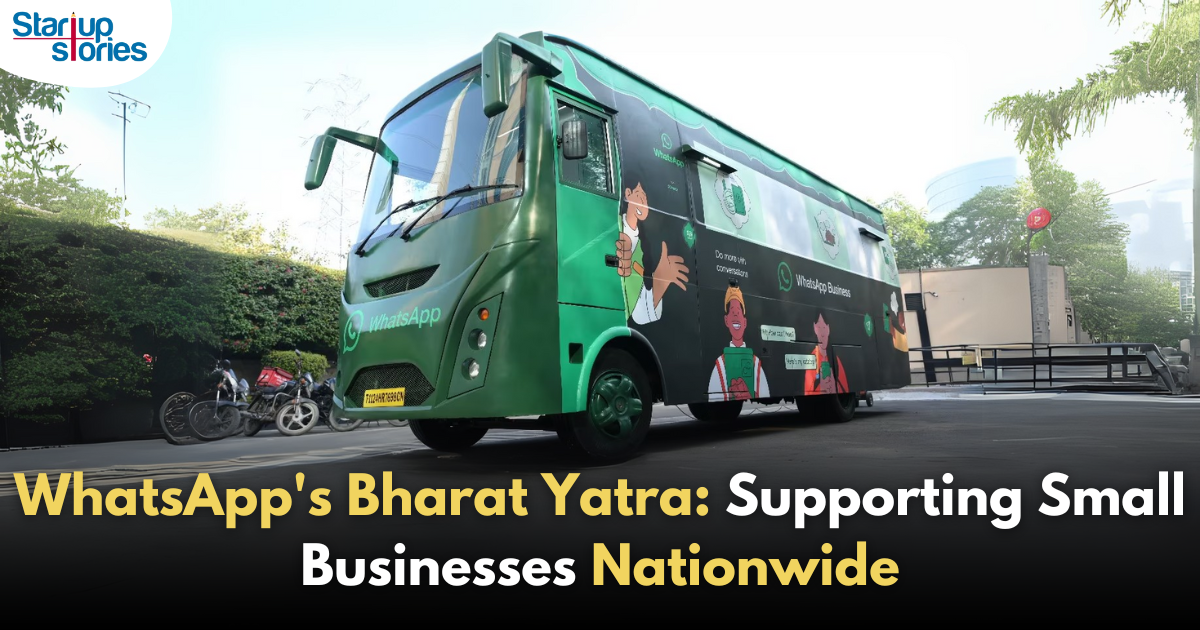Emerging Startup Stories
What makes Amazon work as one of the largest e commerce platform?

The year was 1994 and Jeff Bezos, at the age of 30, realised internet and the world wide web was slowly taking over different parts of the world. Contemplating the idea of beginning his own e commerce firm, Bezos realised his true calling when statistics showed him web usage was growing by 2,300 % in the year 2000. He quit his job and started Amazon by making a list of 20 products he could potentially sell on the internet.
What started off as an idea in a garage bloomed. Bezos’s first investment came from his parents, who put a large sum of money to turn his dream into reality. Back in the day, Amazon was not what it is today. It was primarily an offline store, with a focus on selling rare and famous books! The first book was incidentally sold from Bezos’s garage!
Amazon.com launched its online bookselling site at a time when bookstore chains such as Barnes & Noble, Waldenbooks and Crown Books were familiar storefronts in American shopping malls. Promoting itself as “Earth’s Biggest Bookstore,” Amazon opened for business in July 1995, using major book distributors and wholesalers to rapidly fill its orders.
Back in the beginning, Amazon was sorely understaffed. Bezos’s expected his employees to work round the clock, punching in at least 60 hours a week! In fact, one of his employees was so busy, he forgot he had a car. He realised his faux pas when his email was flooded with tickets and notices!
Every employee had to take a graveyard shift in the fulfillment centers to meet orders. They would bring their friends and family and would often sleep in their cars before going to work the next day. It was only when Bezos realised the severity of the situation that he decided to hire seasonal employees who could work all through the year.
In the early 2000s, Jeff Wilke, Amazon’s operations manager, would let any person or team who accomplished a significant goal close their eyes, lean back and yell into the phone at him at the top of their lungs. Wilke told Brad Stone that some of the primal screams nearly blew out his speakers.
In the early days, it was difficult for the team to see how they could push beyond the $ 5 million mark. Once it did, Bezos made sure they clocked in at least one major achievement through the year and now, even so many years after, Amazon remains as one of the largest e commerce platforms in the world!
Emerging Startup Stories
WhatsApp’s Bharat Yatra: Empowering Small Businesses Across India!

WhatsApp has embarked on a nationwide initiative called Bharat Yatra to empower small and medium businesses (SMBs) across India. This innovative mobile bus tour aims to provide hands-on training and support to help businesses leverage the power of digital technology, particularly through the WhatsApp Business app.
Key Focus Areas
- Digital Skill Enhancement: The Bharat Yatra program is designed to equip SMBs with essential digital skills necessary to thrive in the digital age. This includes training on how to effectively navigate the digital landscape and utilize online tools for business growth.
- WhatsApp Business App Training: Participants will learn how to use the WhatsApp Business app to connect with customers, share product catalogs, and manage inquiries efficiently. This training is crucial for businesses looking to enhance customer engagement and streamline communication.
- Latest Features and Updates: The tour will highlight the latest features of WhatsApp Business, including Meta Verified, which enhances business credibility, and custom messaging options that allow for personalized communication with customers.
- AI Integration: Businesses will also be introduced to the potential of Meta AI integration, which can streamline customer engagement processes and boost overall productivity. This aspect of the training aims to familiarize SMBs with advanced tools that can enhance their operational efficiency.
Tour Details
The Bharat Yatra will kick off its journey in Delhi-NCR, visiting bustling markets such as Laxmi Nagar, Rajouri Garden, and Nehru Place. Over the coming months, the bus will cover key business hubs in cities like Gurugram, Noida, Agra, Lucknow, Indore, Ahmedabad, and others. Each stop will feature interactive demos, expert guidance, and personalized support tailored to the unique needs of local businesses.
Impact on the Indian Economy
By engaging directly with businesses across major cities, WhatsApp aims to create a tangible impact on the Indian economy. The initiative aligns with WhatsApp’s broader goal of supporting small businesses and fostering digital growth in India. According to Ravi Garg, Director of Business Messaging at Meta India, “Small businesses are the backbone of India’s economy, and with the right digital tools, they have the power to supercharge the country’s digital transformation.”
Conclusion
As the Bharat Yatra continues its journey across India, it is expected to empower thousands of SMBs, contributing significantly to India’s economic development and digital transformation. By providing essential training and resources, WhatsApp is not only enhancing business capabilities but also reinforcing its commitment to fostering a robust small business ecosystem in India. This initiative builds on previous efforts such as WhatsApp Se Vyapaar, which aimed to upskill millions of traders, further demonstrating WhatsApp’s dedication to supporting India’s entrepreneurial landscape.
Emerging Startup Stories
Discover Kheyti, The Startup Changing The Lives of Farmers In India

Farming has been an integral part of India’s history and culture for ages. It’s been the foundation of the Indian economy, supporting millions of people with food and jobs. Crops and agriculture hold immense importance in Indian society, not just in terms of money, but also in terms of culture, community, and spirituality.
Farming is a way of life for many people in India, but it can be a difficult and unpredictable business and farmers face a number of challenges, from erratic weather patterns to low market prices for their crops. Kheyti is a social enterprise founded in 2015 by Saumya, Kaushik Kappagantula, and Sathya Raghu. The organisation provides sustainable solutions to small farmers in India, helping them overcome challenges and improve their lives.
Kheyti’s flagship product is the “Greenhouse-in-a-Box,” a low-cost modular greenhouse that allows farmers to grow high-value crops year-round, even in unfavourable weather conditions. operates on a subscription-based model, where farmers can purchase a “Greenhouse-in-a-Box” kit or sign up for crop advisory services on a monthly or annual basis. Kheyti.com also earns revenue by connecting farmers with markets and buyers, taking a small commission on sales. They work to keep the costs low by partnering with local manufacturers to produce their products and leveraging tech to provide personalised crop advisory services at scale.
They also provide crop advisory services to farmers, offering personalised advice on crop selection, planting, and management. In total, The company has helped over 6,000 small farmers increase their incomes by an average of 300%. You call them small farmers, Kheyti calls them Smart farmers!
While there are other companies in India that offer similar solutions to small farmers, Kheyti stands out for its focus on sustainability, innovation, and community involvement. It works closely with farmers to develop tailored solutions that meet their needs while focusing on sustainable farming practices. Through its efforts, Kheyti has improved soil health, reduced water usage, and increased yields of various crops.
Looking ahead, Kheyti plans to expand its reach to more farmers in India and beyond and aims to continue developing new products and services that can help small farmers overcome the challenges they face. With its commitment to sustainability and innovation, The visionaries at Kheyti claim it has the potential to transform the agricultural sector and contribute to a more equitable future for all.
Imagine the joy and hope Kheyti brings to struggling farmers in India. With Kheyti’s help, over 6,000 small farmers have transformed their lives, becoming Smart farmers who handle challenges and succeed. With sustainable solutions, Kheyti is not only revolutionising agriculture but also spreading hope for a brighter future.
Emerging Startup Stories
Suki: This Startup Wants To Transform Healthcare With Its Artificial Intelligence Tool

We live in a rapidly transforming era where humanity is making exponential leaps in technology. Thirty years ago, no one would have believed you could talk to an online voice assistant to create tasks and get things done. Ten years ago, no one would have believed humanity would land robots on Mars. Technology truly has improved the quality of living of every human who owns a smartphone and has access to an internet connection. Voice assistants are slowly replacing manual tasks and making lives easier and efficient. Siri, Alexa, Google Voice Assistant are just some of the widely used artificial intelligence based tools which are employed on a daily basis. Artificial intelligence, which is hailed as the technology of the future is now slowly making its way into much more complex domains like self driving vehicles, quantum computing and also health care.
Suki, a United States of America based startup founded by Punit Soni, developed their own voice assistant which runs on artificial intelligence to simplify healthcare for doctors and other healthcare professionals. In simple terms, Suki is akin to Siri for doctors. While you could order a pizza or schedule an appointment on Siri, doctors could modify, edit and add health records of their patients. Suki is a powerful tool to help doctors with documentation of health records which often take hours of their (doctors) time.
Suki currently focuses on documentation but has the potential to expand its usage to data queries, ordering, prescribing and billing. According to a white paper published by Suki, using its technology increases the time a doctor spends with a patient by 12% by cutting note taking time by 76%. The time which is saved also brings in a financial benefit of $30,000 more in revenue a year on average for doctors.
Suki raised a $ 20 million Series B round from Flare Capital Partners, First Round Capital, and Venrock, doubling its total funding to $ 40 million since its 2017 launch. Suki is also looking to expand its reach in India and has decided to establish Bangalore as their base of operations. India holds a lot of potential for Suki considering the amount of manual work which goes into almost any sector.
It would be interesting to watch how Suki and other similar AI based startups would transform healthcare across the world.












ta0od
June 6, 2025 at 11:47 am
can you buy clomid for sale how can i get clomiphene tablets how can i get cheap clomid tablets order cheap clomiphene without dr prescription cost of generic clomid prices generic clomiphene for sale where buy cheap clomid tablets
MM88
November 8, 2025 at 3:21 am
Khám phá thế giới giải trí trực tuyến đỉnh cao tại MM88, nơi mang đến những trải nghiệm cá cược thể thao và casino sống động.
Kuwin
November 8, 2025 at 11:03 am
kuwin sở hữu kho game đa dạng từ slot đến trò chơi bài đổi thưởng, mang đến cho bạn những giây phút giải trí tuyệt vời.
谷歌外推
November 12, 2025 at 4:22 am
采用高效谷歌外推策略,快速提升网站在搜索引擎中的可见性与权重。谷歌外推
J88
November 14, 2025 at 5:54 am
Đến với J88, bạn sẽ được trải nghiệm dịch vụ cá cược chuyên nghiệp cùng hàng ngàn sự kiện khuyến mãi độc quyền.
MM88
November 16, 2025 at 9:21 am
Với giao diện mượt mà và ưu đãi hấp dẫn, MM88 là lựa chọn lý tưởng cho các tín đồ giải trí trực tuyến.
GO88
November 21, 2025 at 6:01 am
Tham gia cộng đồng game thủ tại Go88 để trải nghiệm các trò chơi bài, poker phổ biến nhất hiện nay.
kingmaker cashback bonus
December 21, 2025 at 8:03 pm
Sie sind dafür verantwortlich, sicherzustellen, dass Sie die Spiele in dem Land spielen dürfen,
von dem aus Sie darauf zugreifen. Es liegt in Ihrer alleinigen Verantwortung, die gesetzlichen Altersanforderungen für Glücksspiele einzuhalten.2.2 Persönliche Unterhaltung.
Sie müssen die Spiele stets gemäß den jeweils geltenden Sonderregeln spielen. Aristo bietet ein sehr komplettes Linearprofil
mit sehr gutem Fundament und einer sehr guten Euter-Vererbung.
Tischspiele kannst du nicht nur im Live Casino spielen.
Die Gewinne aus Ihren Freispielen müssen 40-mal umgesetzt
werden, und auch Ihre Bonusgelder müssen 40-mal umgesetzt
werden. Melden Sie sich noch heute bei Bull
Casino an und erhalten Sie einen 200% Bonus bis zu €5.000 sowie bis zu
250 Freispiele mit Ihrer ersten Einzahlung. Es gibt auch
einen Tischspielebereich mit Blackjack, Mines, Roulette,
Craps, Baccarat, Würfelspielen, Videopoker und mehr. Melden Sie sich noch heute
bei Bull Casino an und erhalten Sie einen 200%
Bonus bis zu €5.000 sowie bis zu 250 Freispiele auf Pragmatic Play Slots mit Ihrer ersten Einzahlung.
Unsere vielfältige Auswahl umfasst Tausende von Spielen vertrauenswürdiger Anbieter und umfasst
Kategorien wie Slots, Sofortgewinne, Blackjack, Roulette, Jackpots und
mehr.5.2.2 Zugänglichkeit der AnleitungenJedes Spiel enthält eine umfassende, leicht verständliche Anleitung,
die sicherstellt, dass die Spieler die Spielmechanik und die
Regeln verstehen.
References:
https://online-spielhallen.de/bizzo-casino-deutschland-test-boni-erfahrungen/
Brisbane riverside accommodation
December 27, 2025 at 3:38 pm
Summarize, draft, analyze, and explore ideas with AI chat.
Odds and lines subject to change. First Team All-AmericanNotre Dame leads all schools with 3 of the 18 total 3-time Consensus All-American selections.
The 1948 win over Kentucky saw the Irish defeat the
eventual Tournament champion who would go on to win both the 1948 and
1949 titles. The wins include several wins
over the defending NCAA Tournament Champion. The Irish were awarded two Helms Athletic Foundation National Championships.
The campus is served by buses to Seattle and some Eastside cities at the Overlake Transit Center, operated
by Sound Transit and King County Metro. Microsoft also announced its intention to
contain most its future growth within Redmond, while retaining some offices in Downtown Bellevue and Factoria.
The campus was originally leased to Microsoft from the Teachers Insurance and Annuity Association, a pension fund manager, until it was bought back
in 1992. Microsoft chose to move its headquarters from Bellevue to nearby Redmond in January 1985, selecting
a 29-acre (12 ha) plot of land that would be developed by
Wright Runstad & Company. Microsoft initially moved onto the grounds
of the campus on February 26, 1986, weeks before
the company went public on March 13.
The campus is located on both sides of the State Route 520 freeway,
which connects it to the cities of Bellevue
and Seattle as well as the Redmond city center. In 2009, a shopping mall called
“The Commons” was completed on the campus, bringing 1.4 million square feet (130,000 m2) of retail space,
as well as restaurants, a soccer field and pub to the West Campus.
Green Building Council’s LEED Platinum certification and the International Living Future Institute’s
Zero Carbon certification and has achieved Salmon Safe Certification.
By adding native and adaptive vegetation, using rainwater capture for toilet flushing, and installing
efficient fixtures and irrigation, the campus is projected
to save more than 20 million gallons of water each year.
At the heart of the new section lies a two-acre (0.8 ha) plaza that can host events and gatherings for both employees and the public.
Architectural portals connect the campus to the garage below, allowing employees
and visitors quick access and creating a pedestrian focus on campus.
References:
https://blackcoin.co/holdem-headsup-on-fifth-street/
Maximizing sticky bonus
December 27, 2025 at 4:20 pm
Once you’ve signed in, check your email by opening
your inbox. We work hard to protect you from spam, phishing, and malware, before they reach your inbox.
Google Workspace is a set of productivity and collaboration tools that helps individuals, teams, and businesses stay on top
of everything. Gmail offline lets you read, reply, delete, and search your Gmail messages when you’re not connected to the internet.
While Gmail’s features are secure enough for most users, some accounts may require additional layers of safety.
Collaborate faster, from any device, anytime, all in one place.
We never use your Gmail content to personalize
ads.
Can u detail what voltage range it support from standard
5V and difference between q and PD for type A which seem to be non standard
References:
https://blackcoin.co/understanding-the-login-process-in-online-gambling/